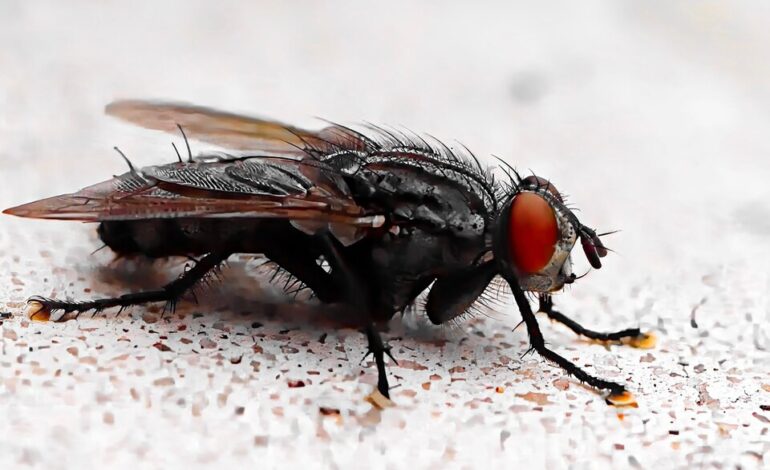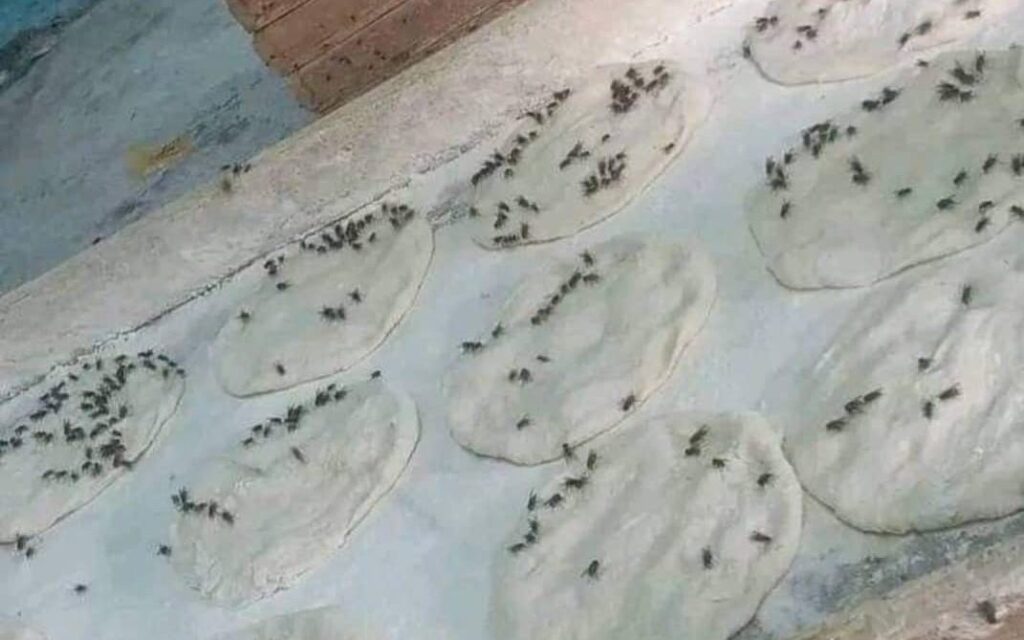
Faith Nyasuguta
Port Sudan, one of Sudan’s major cities and a key international trade hub, is grappling with an unprecedented fly infestation that poses a significant health crisis. This outbreak, described as the worst in the city’s history, has inundated homes, offices, and food supplies with billions of flies, creating a dire situation.
The surge in population in Port Sudan, exceeding 500,000, resulted from a mass migration following intense fighting in the capital, Khartoum, earlier this year. Overcrowding and inadequate sanitation in the city have provided ideal conditions for the Musca fly, commonly known as the “house fly,” to breed rapidly.
Professor Ayman Ahmed from the Institute of Endemic Diseases at the University of Khartoum emphasized the severity of the infestation, stating that the entire city is affected.
The Musca fly, thriving in unsanitary conditions, has made basic activities such as sitting, eating, and working nearly impossible. Markets are depicted with food items covered in flies, and residents futilely attempt to ward off swarms in videos.
While fly infestations receive less global attention than locust or mosquito outbreaks, experts highlight their potential for severe consequences. The Musca fly, known to transmit diseases like typhoid and cholera, becomes a vector for health crises in such situations. Historically, fly infestations caused devastating epidemics in cities like London and New York during the mid-1800s and early 1900s.
The Musca fly’s capacity to transmit diseases has even been exploited in warfare. In World War II, Japan’s Unit 731 developed ceramic bombs containing flies and cholera-causing bacteria, resulting in a deadly epidemic in China.
The Musca fly, with its ability to multiply rapidly, feeds on decaying matter, including feces. Poor sanitation, overcrowding, and favorable weather conditions contribute to the explosive growth of fly populations. The flies spread diseases by carrying bacteria, viruses, or parasites and regurgitating them in human food or open wounds.

Sudan’s current internal displacement crisis, with five million people displaced, exacerbates the situation. Refugee camps lacking waste disposal systems and hygienic facilities become breeding grounds for flies. Unusually warm and humid weather in Port Sudan, linked to climate change by Professor Ahmed, further compounds the issue.
Professor Ahmed reported over 5,000 cholera cases and 200 deaths in the region, along with instances of dengue and dysentery. Efforts to combat the infestation involve closing the main market and aerial spraying of pesticides. However, this approach may prove ineffective without addressing fundamental issues like waste management.
As authorities grapple with this crisis, the importance of addressing sewage and food waste issues is being emphasized. The complexity of the situation, including refugee populations, poverty, poor sanitation, and overcrowding, necessitates comprehensive solutions to prevent further escalation.
RELATED:




